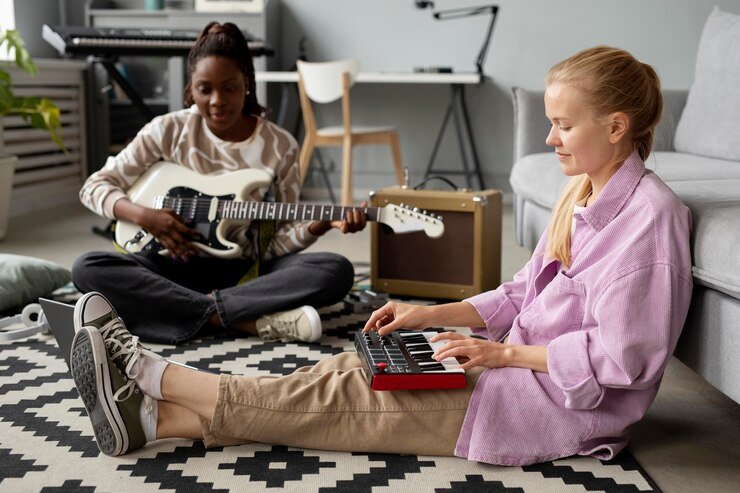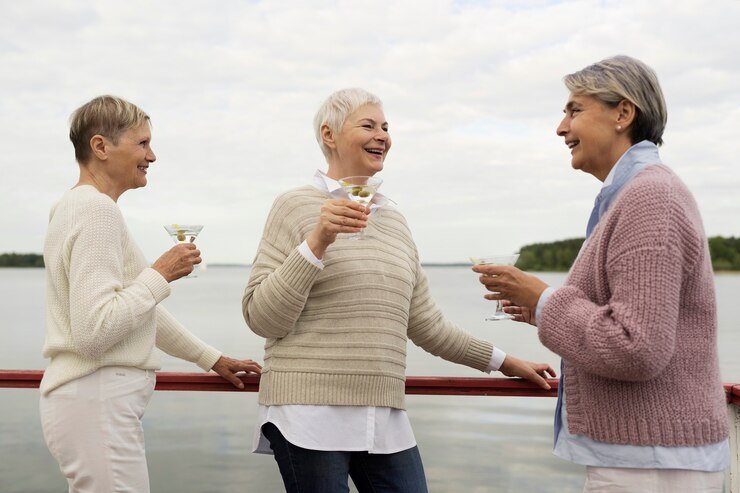Caregiving is a multi-faceted journey that often involves not only meeting the physical needs of the individual being cared for but also addressing their emotional and psychological well-being. In this context, music and art therapy have emerged as powerful tools for promoting healing, fostering emotional expression, and strengthening connections between caregivers and their loved ones. Let’s delve into the transformative role of music and art therapy in caregiving and how they contribute to enhancing the overall quality of life for both caregivers and care recipients.
Healing Through Music
Music has a unique ability to evoke emotions, evoke memories, and create a sense of comfort and solace. In the realm of caregiving, music therapy harnesses the therapeutic properties of music to address a wide range of physical, emotional, and cognitive needs. For individuals with dementia or Alzheimer’s disease, music can act as a powerful reminiscence tool, stirring memories and facilitating communication even in advanced stages of the condition. Caregivers can incorporate familiar songs or melodies into daily routines to provide a sense of familiarity and comfort to their loved ones.
Moreover, music therapy offers a non-verbal means of expression for individuals who may have difficulty communicating verbally due to illness or cognitive impairment. Through singing, playing instruments, or listening to music, caregivers and care recipients can engage in meaningful interactions that transcend language barriers. Music therapy sessions conducted by trained therapists can help alleviate symptoms of anxiety, depression, and agitation, promoting relaxation and emotional well-being for both caregivers and care recipients.
Exploring Creativity Through Art
Similarly, art therapy harnesses the creative process of making art to promote self-expression, emotional exploration, and healing. For caregivers, engaging in art activities with their loved ones can provide a welcome respite from the demands of caregiving while fostering a sense of connection and joy. Whether it’s painting, drawing, sculpting, or collage-making, art therapy encourages individuals to tap into their innate creativity and express themselves in a safe and supportive environment.
Art therapy can be particularly beneficial for individuals with conditions such as Parkinson’s disease, stroke, or traumatic brain injury, where motor skills or speech may be impaired. Through guided art activities, individuals can improve motor coordination, enhance cognitive function, and regain a sense of control and agency over their bodies. Caregivers can play an active role in facilitating art therapy sessions, providing encouragement, and creating a nurturing space for creative expression to flourish.
Promoting Connection and Communication
Beyond its therapeutic benefits, music and art therapy play a pivotal role in promoting connection and strengthening relationships between caregivers and care recipients. Engaging in shared musical experiences or collaborative art projects fosters a sense of intimacy and mutual understanding between individuals, transcending the roles of caregiver and care recipient. Caregivers can use music and art as tools for non-verbal communication, allowing them to connect with their loved ones on a deeper emotional level.
Furthermore, group music and art therapy sessions provide opportunities for socialization and community engagement, reducing feelings of isolation and loneliness among caregivers and care recipients. Participating in group activities allows individuals to share their experiences, support one another, and forge meaningful connections with others who are navigating similar challenges. Caregivers can benefit from the sense of camaraderie and solidarity that comes from being part of a supportive community of peers.
Conclusion
In conclusion, music and art therapy offer powerful avenues for promoting healing, fostering creativity, and enhancing connections in the context of caregiving. By incorporating these therapeutic modalities into their caregiving routines, caregivers can create enriching and meaningful experiences for themselves and their loved ones. Whether through singing a favorite song, creating a piece of art together, or simply listening to music, caregivers can harness the transformative power of music and art to promote emotional well-being and strengthen their relationships with those they care for.




